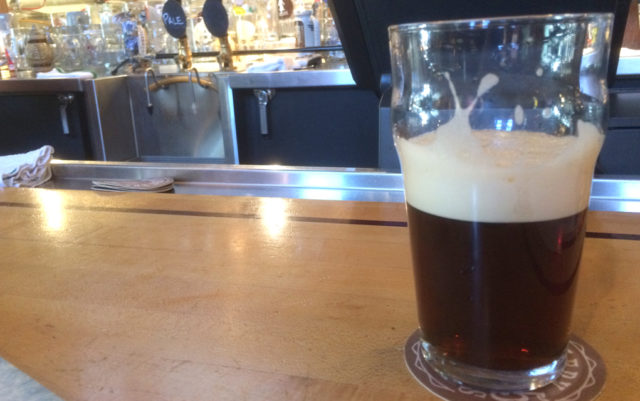
On March 16, 2020, Bart Watson, chief economist for the Brewers Association (BA) — the Boulder-based trade group representing small and independent breweries — posted a short questionnaire on the organization’s website: Coronavirus (COVID-19) Impact Poll. His aim: gather quick data on how the global pandemic was affecting local businesses.
Two days later, Watson published the results. Of the 600-plus breweries that responded, 98.9% reported that their business had seen an immediate effect. The survey did not say where the 1.1% of breweries reporting no impact were located or what made them so damn special.
And though the findings may seem obvious, they are also illuminating.
“Draught sales make up roughly a third of craft production,” Watson writes. “The rapid shuttering or restriction of breweries, bars and restaurants has drastically cut short-term cash flow as well as production in the medium-term.”
The short-term impact is evident, but it’s the medium-term slowdown of production that’s concerning: 88.8% of respondents said production has either slowed or stopped.
Years ago, Charlie Papazian wrote in The New Brewer: “When you do the analysis, smaller companies provide more direct and indirect jobs per unit of product made.”
When we talk about craft breweries, we’re talking about small companies. Many employ less than a dozen and operate on thin margins. Not only are they ill-equipped to handle an unprecedented shutdown, but there have been other storm clouds on the horizon keeping them up at night. From a public that was drinking less (overall beer consumption was down 1% in 2019) to fears of market saturation as the number of craft breweries approaches five digits.
A disruption, any disruption, in business can have long-lasting effects. Gov. Jared Polis’ 30-day closure of in-person dining and drinking will be the proverbial nail in the coffin for a good number of breweries, brewpubs and bars. These were most likely on the chopping block to begin with — either due to rising rent costs, poor performance or top-heavy practices — but they will go into the history books as the first wave of COVID collateral damage.
There are others. The BA canceled the Craft Brewers Conference and the World Beer Cup, along with Savor — its yearly food and beer pairing festival held in Washington, D.C. The Colorado Brewers Guild (CBG) suspended Collaboration Festival indefinitely and postponed Colorado Pint Day. Those events are crucial for both the small and independent breweries it promotes while also raising operating costs for both the BA and the CBG.
This is just the start. And, as of publication, there is no indication that 30 days will be sufficient to curb the COVID-19 pandemic. This could drag on for months. To compound this downer, the U.S. economy has been overdue for a nation-wide recession, while another shakeout in the brewing sector seemed imminent.
COVID-19 appears to be the catalyst that will force this hand. In the coming weeks, we’ll explore the various aspects of what long-term effects we might find with a COVID-19 shutdown, 30 days, or more. And we’ll see how this global pandemic may bring about a rapid collapse to the unprecedented growth enjoyed by local brewers. We’ll also take a look at how the craft brewing market has changed, both in size and identity, and what the future may hold. It ain’t all doom and gloom, but it’s not going to be pretty. Better grab a cold one; this may take a while.
How to help: Gift Cards
Gift cards are the best way to lend a hand to a struggling business. Buying beer and food helps, but a gift card purchase gives the company an immediate influx of cash with no hit to their bottom line — which means the money can go to labor instead of goods. And, for you, a gift card secures a future treat when this all said and done. It’s like a war bond, only more delicious.
Some are even incentivizing gift cards by offering additional bonuses. The Big Red F Restaurant Group, which operates The Post Brewing Company and West End Tavern, among others, will kick in an additional 20-30% if you buy a gift card in amounts from $250-$1,000. That’s a lot of money to help out a business you frequent, and a lot of free drinks down the road.
Currently, there are over 30 Boulder County breweries to buy from. The Colorado Brewers Guild has posted an interactive map created by Megan Bleess to get you started: tinyurl.com/thggxgw.














